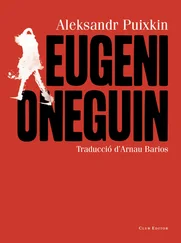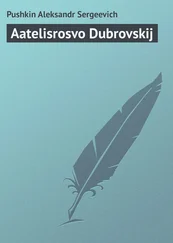Aleksandr Pushkin - Eugene Oneguine [Onegin]. A Romance of Russian Life in Verse
Здесь есть возможность читать онлайн «Aleksandr Pushkin - Eugene Oneguine [Onegin]. A Romance of Russian Life in Verse» весь текст электронной книги совершенно бесплатно (целиком полную версию без сокращений). В некоторых случаях можно слушать аудио, скачать через торрент в формате fb2 и присутствует краткое содержание. Год выпуска: 2007, Жанр: Поэзия, на английском языке. Описание произведения, (предисловие) а так же отзывы посетителей доступны на портале библиотеки ЛибКат.
- Название:Eugene Oneguine [Onegin]. A Romance of Russian Life in Verse
- Автор:
- Жанр:
- Год:2007
- ISBN:нет данных
- Рейтинг книги:4 / 5. Голосов: 1
-
Избранное:Добавить в избранное
- Отзывы:
-
Ваша оценка:
- 80
- 1
- 2
- 3
- 4
- 5
Eugene Oneguine [Onegin]. A Romance of Russian Life in Verse: краткое содержание, описание и аннотация
Предлагаем к чтению аннотацию, описание, краткое содержание или предисловие (зависит от того, что написал сам автор книги «Eugene Oneguine [Onegin]. A Romance of Russian Life in Verse»). Если вы не нашли необходимую информацию о книге — напишите в комментариях, мы постараемся отыскать её.
Eugene Oneguine [Onegin]. A Romance of Russian Life in Verse — читать онлайн бесплатно полную книгу (весь текст) целиком
Ниже представлен текст книги, разбитый по страницам. Система сохранения места последней прочитанной страницы, позволяет с удобством читать онлайн бесплатно книгу «Eugene Oneguine [Onegin]. A Romance of Russian Life in Verse», без необходимости каждый раз заново искать на чём Вы остановились. Поставьте закладку, и сможете в любой момент перейти на страницу, на которой закончили чтение.
Интервал:
Закладка:
In history he took no pleasure,
The dusty chronicles of earth
For him were but of little worth,
Yet still of anecdotes a treasure
Within his memory there lay,
From Romulus unto our day.
VII
For empty sound the rascal swore he
Existence would not make a curse,
Knew not an iamb from a choree,
Although we read him heaps of verse.
Homer, Theocritus, he jeered,
But Adam Smith to read appeared,
And at economy was great;
That is, he could elucidate
How empires store of wealth unfold,
How flourish, why and wherefore less
If the raw product they possess
The medium is required of gold.
The father scarcely understands
His son and mortgages his lands.
VIII
But upon all that Eugene knew
I have no leisure here to dwell,
But say he was a genius who
In one thing really did excel.
It occupied him from a boy,
A labour, torment, yet a joy,
It whiled his idle hours away
And wholly occupied his day—
The amatory science warm,
Which Ovid once immortalized,
For which the poet agonized
Laid down his life of sun and storm
On the steppes of Moldavia lone,
Far from his Italy—his own. [4] Referring to Tomi, the reputed place of exile of Ovid. Pushkin, then residing in Bessarabia, was in the same predicament as his predecessor in song, though he certainly did not plead guilty to the fact, since he remarks in his ode to Ovid: To exile self-consigned , With self, society, existence, discontent, I visit in these days, with melancholy mind, The country whereunto a mournful age thee sent. Ovid thus enumerates the causes which brought about his banishment: "Perdiderint quum me duo crimina, carmen et error, Alterius facti culpa silenda mihi est." Ovidii Nasonis Tristium , lib. ii. 207.
IX
How soon he learnt deception's art,
Hope to conceal and jealousy,
False confidence or doubt to impart,
Sombre or glad in turn to be,
Haughty appear, subservient,
Obsequious or indifferent!
What languor would his silence show,
How full of fire his speech would glow!
How artless was the note which spoke
Of love again, and yet again;
How deftly could he transport feign!
How bright and tender was his look,
Modest yet daring! And a tear
Would at the proper time appear.
X
How well he played the greenhorn's part
To cheat the inexperienced fair,
Sometimes by pleasing flattery's art,
Sometimes by ready-made despair;
The feeble moment would espy
Of tender years the modesty
Conquer by passion and address,
Await the long-delayed caress.
Avowal then 'twas time to pray,
Attentive to the heart's first beating,
Follow up love—a secret meeting
Arrange without the least delay—
Then, then—well, in some solitude
Lessons to give he understood!
XI
How soon he learnt to titillate
The heart of the inveterate flirt!
Desirous to annihilate
His own antagonists expert,
How bitterly he would malign,
With many a snare their pathway line!
But ye, O happy husbands, ye
With him were friends eternally:
The crafty spouse caressed him, who
By Faublas in his youth was schooled, [5] Les Aventures du Chevalier de Faublas , a romance of a loose character by Jean Baptiste Louvet de Couvray, b. 1760, d. 1797, famous for his bold oration denouncing Robespierre, Marat and Danton.
And the suspicious veteran old,
The pompous, swaggering cuckold too,
Who floats contentedly through life,
Proud of his dinners and his wife!
XII
One morn whilst yet in bed he lay,
His valet brings him letters three.
What, invitations? The same day
As many entertainments be!
A ball here, there a children's treat,
Whither shall my rapscallion flit?
Whither shall he go first? He'll see,
Perchance he will to all the three.
Meantime in matutinal dress
And hat surnamed a "Bolivar" [6] A la "Bolivar," from the founder of Bolivian independence.
He hies unto the "Boulevard,"
To loiter there in idleness
Until the sleepless Breguet chime [7] M. Breguet, a celebrated Parisian watchmaker—hence a slang term for a watch.
Announcing to him dinner-time.
XIII
'Tis dark. He seats him in a sleigh,
"Drive on!" the cheerful cry goes forth,
His furs are powdered on the way
By the fine silver of the north.
He bends his course to Talon's, where [8] Talon, a famous St. Petersburg restaurateur.
He knows Kaverine will repair. [9] Paul Petrovitch Kaverine, a friend for whom Pushkin in his youth appears to have entertained great respect and admiration. He was an officer in the Hussars of the Guard, and a noted "dandy" and man about town. The poet on one occasion addressed the following impromptu to his friend's portrait: "Within him daily see the the fires of punch and war, Upon the fields of Mars a gallant warrior, A faithful friend to friends, of ladies torturer, But ever the Hussar."
He enters. High the cork arose
And Comet champagne foaming flows.
Before him red roast beef is seen
And truffles, dear to youthful eyes,
Flanked by immortal Strasbourg pies,
The choicest flowers of French cuisine,
And Limburg cheese alive and old
Is seen next pine-apples of gold.
XIV
Still thirst fresh draughts of wine compels
To cool the cutlets' seething grease,
When the sonorous Breguet tells
Of the commencement of the piece.
A critic of the stage malicious,
A slave of actresses capricious,
Oneguine was a citizen
Of the domains of the side-scene.
To the theatre he repairs
Where each young critic ready stands,
Capers applauds with clap of hands,
With hisses Cleopatra scares,
Moina recalls for this alone
That all may hear his voice's tone.
XV
Thou fairy-land! Where formerly
Shone pungent Satire's dauntless king,
Von Wisine, friend of liberty,
And Kniajnine, apt at copying.
The young Simeonova too there
With Ozeroff was wont to share
Applause, the people's donative.
There our Katenine did revive
Corneille's majestic genius,
Sarcastic Shakhovskoi brought out
His comedies, a noisy rout,
There Didelot became glorious,
There, there, beneath the side-scene's shade
The drama of my youth was played. [10] Denis Von Wisine (1741-92), a favourite Russian dramatist. His first comedy "The Brigadier," procured him the favour of the second Catherine. His best, however, is the "Minor" (Niedorosl). Prince Potemkin, after witnessing it, summoned the author, and greeted him with the exclamation, "Die now, Denis!" In fact, his subsequent performances were not of equal merit. Jacob Borissovitch Kniajnine (1742-91), a clever adapter of French tragedy. Simeonova , a celebrated tragic actress, who retired from the stage in early life and married a Prince Gagarine. Ozeroff , one of the best-known Russian dramatists of the period; he possessed more originality than Kniajnine. "Oedipus in Athens," "Fingal," "Demetrius Donskoi," and "Polyxena," are the best known of his tragedies. Katenine translated Corneille's tragedies into Russian. Didelot , sometime Director of the ballet at the Opera at St. Petersburg.
Интервал:
Закладка:
Похожие книги на «Eugene Oneguine [Onegin]. A Romance of Russian Life in Verse»
Представляем Вашему вниманию похожие книги на «Eugene Oneguine [Onegin]. A Romance of Russian Life in Verse» списком для выбора. Мы отобрали схожую по названию и смыслу литературу в надежде предоставить читателям больше вариантов отыскать новые, интересные, ещё непрочитанные произведения.
Обсуждение, отзывы о книге «Eugene Oneguine [Onegin]. A Romance of Russian Life in Verse» и просто собственные мнения читателей. Оставьте ваши комментарии, напишите, что Вы думаете о произведении, его смысле или главных героях. Укажите что конкретно понравилось, а что нет, и почему Вы так считаете.











